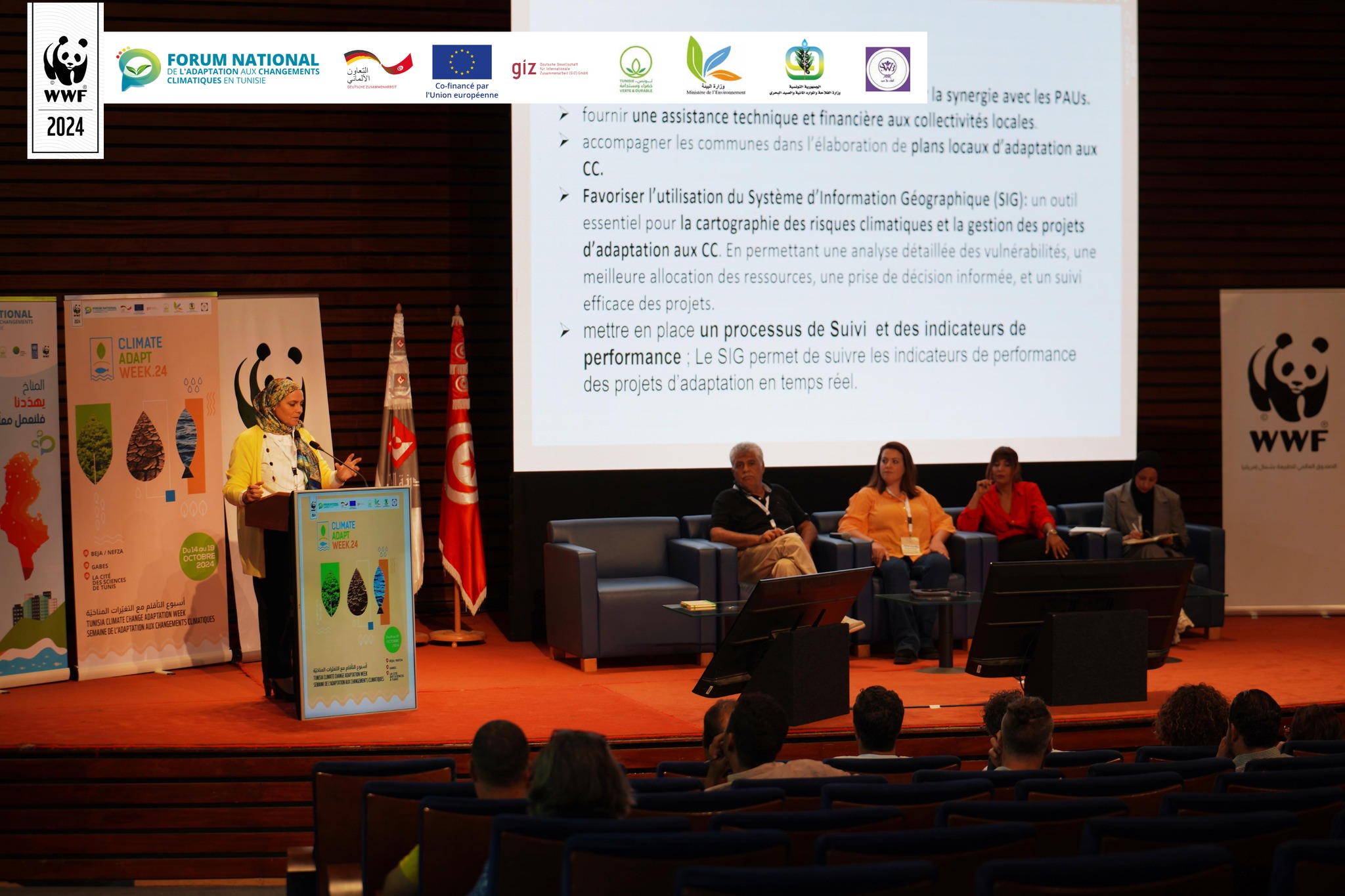
The World Wildlife Fund (WWF) in North Africa, in collaboration with the National Forum for Climate Change Adaptation (FNACC) and in partnership with the German Development Cooperation (GIZ), with support from the Ministry of Environment and the Ministry of Agriculture, Water Resources, and Fisheries, organized the Climate Change Adaptation Week from October 14 to 19, 2024. This event aimed to promote dialogue and awareness on climate adaptation, featuring a series of activities, seminars, sector-specific workshops, along with regional initiatives and artistic exhibitions.
The events held as part of this week highlighted the latest trends in climate adaptation and discussed various topics, including spatial and urban planning, local climate action plans for municipalities, and natural resource management. Key issues like water scarcity, sustainable management of terrestrial and coastal ecosystems, and direct impacts on the environment and local communities were also addressed. This event is part of Tunisia’s efforts to tackle climate change challenges by promoting sustainable solutions tailored to national and regional characteristics.
Hundreds of participants from the public sector, ministry representatives, academics, researchers, as well as the private sector, civil society, and media gathered on October 17 and 18 at the City of Sciences in Tunis to discuss current climate issues and challenges Tunisia faces.
The event also included a cultural and artistic day under the theme “Art for the Earth: Inspire, Create, Act,” featuring film screenings, artistic, and environmental initiatives. This occasion served as a platform for creative expression, where artists highlighted environmental challenges from an artistic perspective. At the end of the event on Saturday, October 19, a summary of the week’s activities and recommendations was presented, calling on decision-makers to increase coordination among all involved parties and urging them to strengthen urgent measures for climate adaptation in Tunisia.
In addition, a workshop was organized in Gabes on October 12, in collaboration with the Association of Citizenship and Sustainable Development (ACDD), bringing together 40 representatives from associations across different governorates. The workshop facilitated experience sharing on climate adaptation practices and showcased the experiences of associations from Kerkennah, Gabes, Beni Khedash, and Djerba. Key topics covered included governance, funding, and technological innovation, aiming to enhance environmental resilience in southern Tunisia.

Future Directions and the Importance of Collective Awareness
Ms. Saba Kallouz, Director of Nature Conservation at WWF North Africa, emphasized the need for joint efforts to address the country’s vulnerability to climate change. She stated that raising awareness among citizens, civil society, and the private sector on the need for policies tailored to local characteristics has become an urgent requirement. Data indicate that the Mediterranean region is more rapidly affected by climate change, further exacerbating water scarcity and environmental degradation pressures.
On the other hand, Dr. Nesrine Chahata, President of the National Forum for Climate Change Adaptation, stressed the necessity of legislative and regulatory measures to mitigate the effects of climate change. She emphasized the importance of shared dialogue among relevant parties at both the national and local levels to ensure an effective response.
The Climate Change Adaptation Week activities resulted in a series of general and sector-specific recommendations, which will later be compiled into an official document for decision-makers and relevant ministries to strengthen coordination in facing environmental challenges and to ensure a secure and sustainable future for Tunisia.

.jpg) Equipe de rédaction
Equipe de rédaction